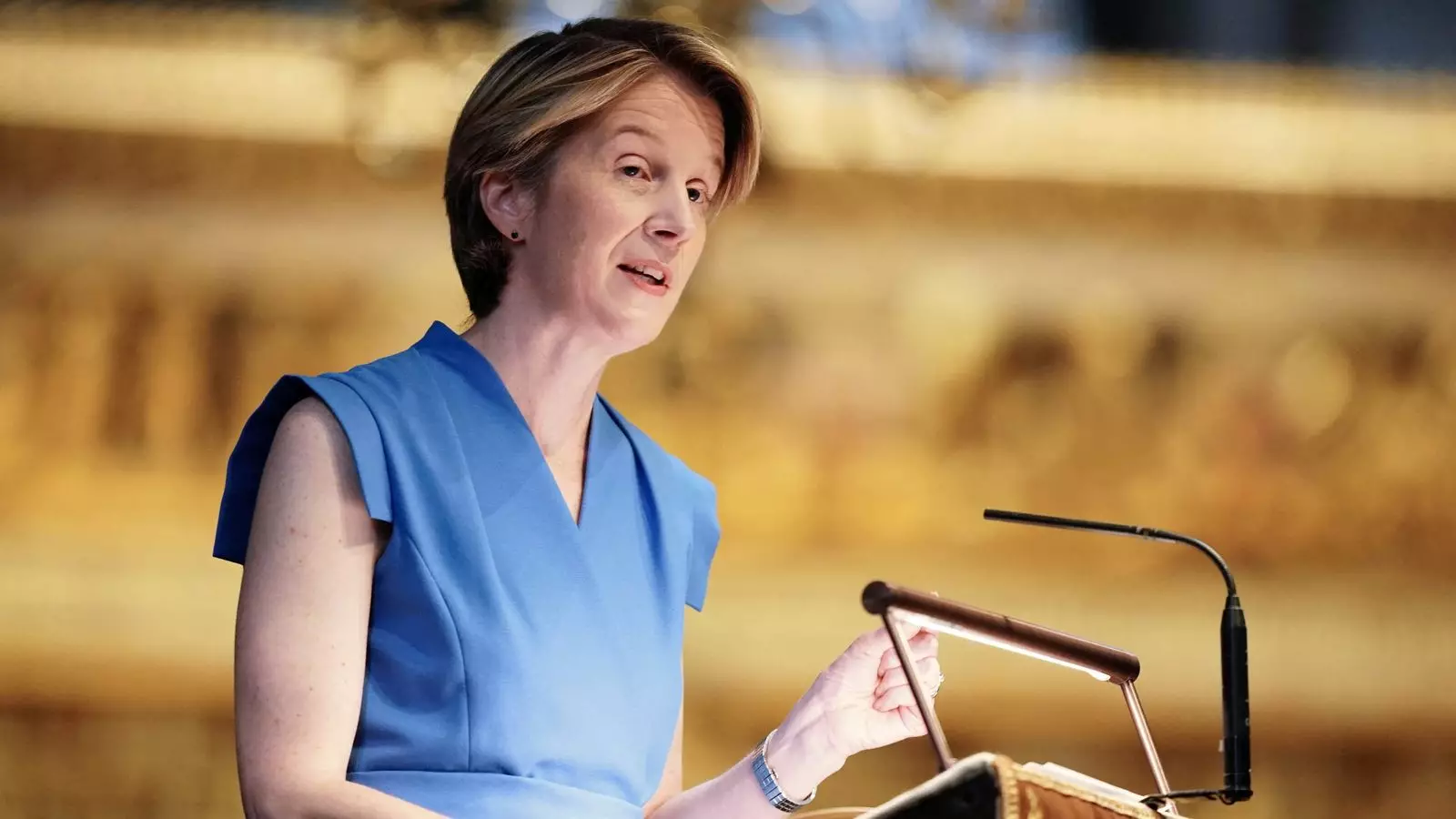The resignation of Amanda Pritchard, the first female chief executive of NHS England, marks a significant chapter in the organization’s history. Appointed in 2021, Pritchard stepped into this leadership role during one of the most challenging times for the National Health Service (NHS), becoming a symbol of resilience and change. However, her recent decision to resign has sparked a myriad of discussions regarding the future of NHS England, especially at a time when the healthcare system is grappling with substantial reform demands.
Pritchard’s tenure will be remembered for navigating the choppy waters created by the COVID-19 pandemic. As chief operating officer before leading NHS, she pioneered strategies to address immediate healthcare challenges while laying down essential groundwork for long-term solutions. However, despite these accomplishments, a recent parliamentary inquiry raised concerns about her leadership style. MPs from various parties criticized her responses during committee hearings, describing them as “lengthy and diffuse.” The criticism hinted at a perceived lack of urgency or decisiveness that many believe is essential for an effective leadership position in healthcare during a reformative phase. This dissent may have intensified scrutiny on her role, contributing to her eventual resignation.
Pritchard described her decision as “hugely difficult,” indicating the weight of responsibility that her role demanded. In her resignation statement, she highlighted the NHS’s recovery progress and her belief that the time was ripe for change. Her assertion that leading the NHS was an “enormous privilege” underlines her commitment and dedication to the institution, as well as her acknowledgment of the staff’s unyielding efforts during a turbulent period. Such reflections reveal a leader who is deeply aware of her environment and the pressures surrounding her.
Health Secretary Wes Streeting extended praise toward Pritchard, affirming that she should feel immense pride in her leadership throughout public health crises and political challenges during her tenure. His commendation emphasizes the importance of continuity in leadership, especially in a system that has experienced six different health secretaries during her lead. This perspective suggests that while Pritchard may step down, her contributions and experiences will not be forgotten and will likely influence her successor’s strategies.
With Pritchard’s resignation, Sir James Mackey has been appointed as the interim chief executive, indicating a shift towards a new management style. Mackey, currently the chief executive of Newcastle Hospitals Foundation Trust, will find himself at the helm during a critical transition period. His appointment reflects NHS England’s strategic move to incorporate leaders with firsthand experience in tackling elective recovery and systemic reform, particularly needed following the pandemic.
The decision for transition doesn’t come lightly, as the NHS continues to face enormous challenges including capacity issues, resource allocation, and addressing backlogs created during the pandemic. The incoming leadership will be crucial in establishing pathways to not only stabilize the healthcare system but also push for visionary reforms that align with the long-term goals of the NHS.
As the NHS enters this new phase, the health and social care committees continue to play a vital role in overseeing reforms and ensuring accountability. The criticisms surrounding Pritchard may serve as a cautionary tale for future leaders within NHS England. The need for effective communication and clear, actionable plans will be paramount as the new chief executive acclimatizes to the demands of the role.
While Amanda Pritchard’s exit symbolizes a leadership shift, it is also a reminder of the ongoing battles faced by the NHS. As the organization seeks a pathway towards recovery and reform, the legacy and lessons from her tenure will likely inform future strategies. The pressures are immense; with a dedicated staff behind them, the next leader must harness innovation, collaboration, and an unwavering focus on the patient experience to truly lead the NHS into its next chapter.


Leave a Reply